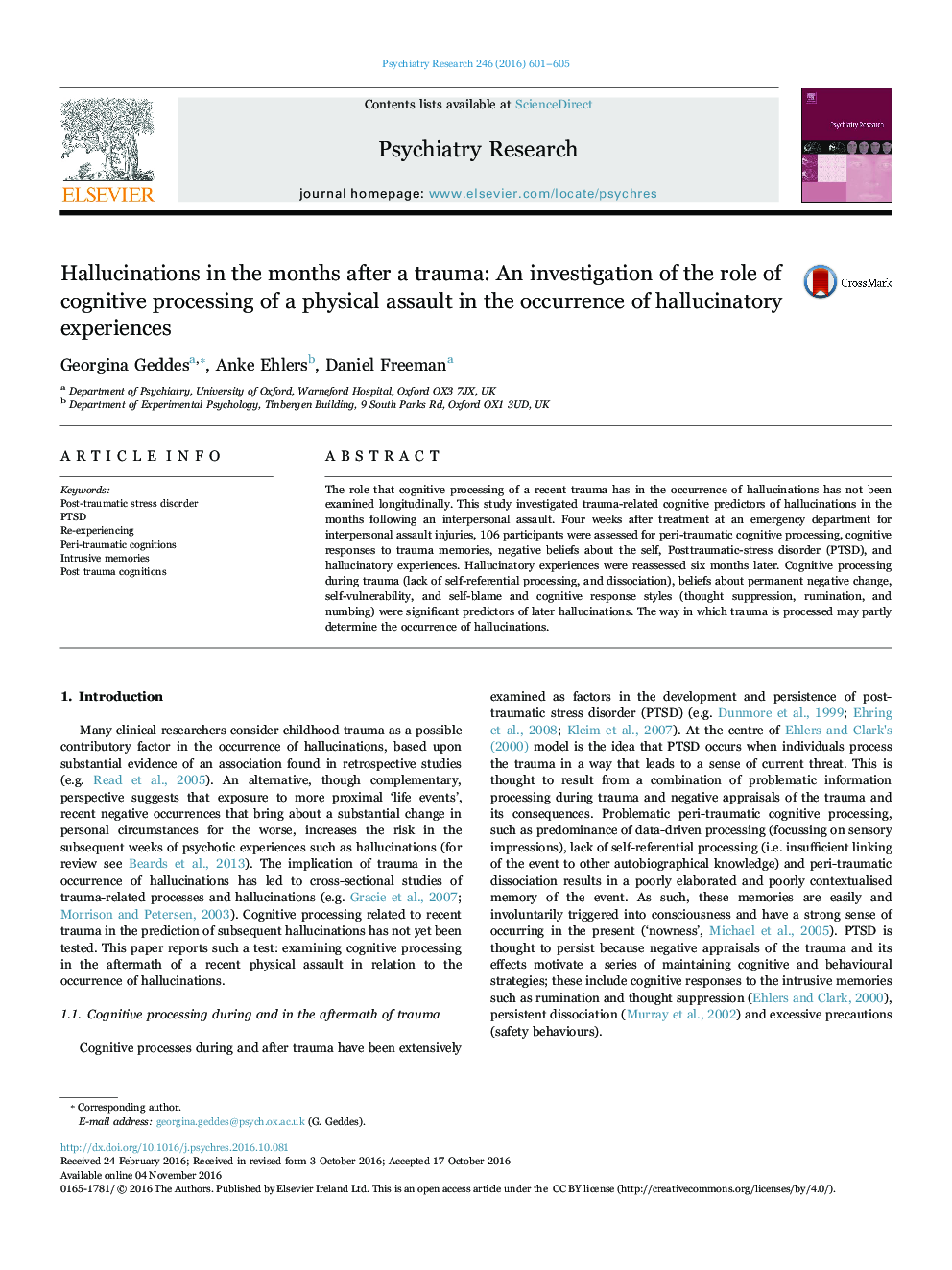| Article ID | Journal | Published Year | Pages | File Type |
|---|---|---|---|---|
| 4933841 | Psychiatry Research | 2016 | 5 Pages |
â¢The first longitudinal investigation of trauma-related cognitive predictors of hallucinations.â¢A range of peri- and post traumatic processing predicted later hallucinatory experience.â¢The way in which trauma is processed may partly determine hallucination occurrence.â¢The main weakness of the study was that it was a secondary analysis of an existing dataset.
The role that cognitive processing of a recent trauma has in the occurrence of hallucinations has not been examined longitudinally. This study investigated trauma-related cognitive predictors of hallucinations in the months following an interpersonal assault. Four weeks after treatment at an emergency department for interpersonal assault injuries, 106 participants were assessed for peri-traumatic cognitive processing, cognitive responses to trauma memories, negative beliefs about the self, Posttraumatic-stress disorder (PTSD), and hallucinatory experiences. Hallucinatory experiences were reassessed six months later. Cognitive processing during trauma (lack of self-referential processing, and dissociation), beliefs about permanent negative change, self-vulnerability, and self-blame and cognitive response styles (thought suppression, rumination, and numbing) were significant predictors of later hallucinations. The way in which trauma is processed may partly determine the occurrence of hallucinations.
